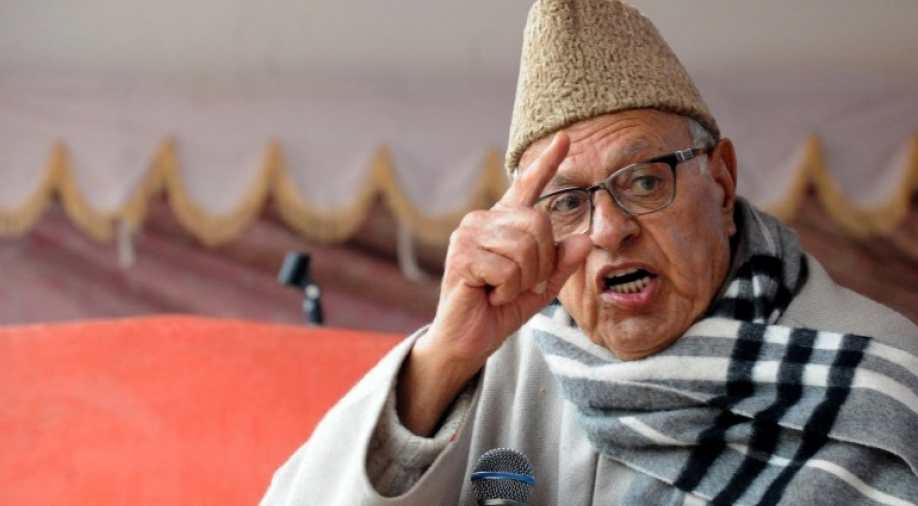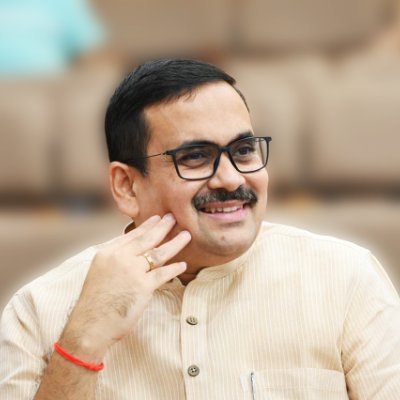One of the spoilt dynasts of Indian politics, Omar Abdullah, has made the demand of taking the state of Jammu & Kashmir to the pre-1953 status and has called for having a separate prime minister and president for the state. This separatist call must be unreservedly condemned.
The Abdullah family of Kashmir have treated the state as their personal fief; they have exploited the people and have based their politics on threat, coercion, violence and have made repeated calls for dismembering India. They have pandered to terrorism and separatism; they have peddled the narrative of Pakistan on Kashmir and have presided over one of the most gruesome episodes of ethnic cleansing that has taken place post-Independence. They come across as parasitic political elements who have no allegiance to the Indian Union, have no commitment to India’s freedom and her future. It was the same family which had tricked Dr Syama Prasad Mookerjee into entering Kashmir and had then incarcerated him, subjected him to great pressure, physical pain and mental trauma ultimately leading to his sudden death while Nehru looked the other way. This subversive and mischievous demand is, as Arun Jaitley has argued, “intended to create a separatists psyche.”
Prime Minister Modi has rightly asked Congress and the “Federal Front” parties to clarify their stand on this demand made by Omar Abdullah, since National Conference is an inseparable ally of the Rahul Gandhi-led Congress and is, at the same time, defying logic, a fundamental constituent of the Federal Front. The theatrical Farooq Abdullah was a star attraction at the January 19 Brigade Rally organised by Trinamool Congress.
Let Congress and the other parties make their position clear on Omar’s demand – do they support a separate existence for Kashmir, do they support his call for separating Kashmir from the Constitutional framework of India, do they adhere to this divisive call, is it the agenda they wish to fulfil, if, by chance of fate, they ever come to power at the Centre? Will the separation of Kashmir be their objective, will their foreign policy be directed towards that end? These are questions that these parties, especially Congress and the lead party of the Federal Front, Trinamool Congress, have to answer to the people who are in no mood to tolerate separatism.
But the Abdullah family’s tryst with separatism goes back a long time, as exposed first by Dr Mookerjee while participating in a debate on Kashmir in the first Lok Sabha on 7 August 1952. Dr Mookerjee pointed at how Sheikh Abdullah, Omar Abdullah’s grandfather had increasingly resorted to the language of separatism, “Since when did the trouble start? Let us look at it dispassionately. Since Sheikh Abdullah’s return from Paris some time ago statements started to be made by him which disturbed us. Even then we did not speak out. His first statement he made in an interview which he gave when he was abroad, about his vision of an independent Kashmir. And then when he came back he amplified it, then again retracted from it and gave an explanation, and then speeches which he has made during the last few months were of a disturbing character. If he feels that his safety lies in remaining out of India, well, let him say so; we will be sorry for it, but it may become inevitable…” Sheikh Abdullah’s call for an “independent Kashmir” was first made on foreign soil. We remind Omar of these words and throw these back at him. If he and his family feel that their safety lies in remaining out of India, let them articulate it so, but they cannot pass off their urge to be separate from India as the wishes of the people of Kashmir!
He would, Dr Mookerjee said, “give whole-hearted support to the scheme (separate provision) as an interim measure” only if Sheikh Abdullah accepted the sovereignty of the Indian Parliament. “Let Sheikh Abdullah declare that he accepts the Sovereignty of this Parliament. There cannot be two Sovereign Parliaments in India. You talk of Kashmir being part of India, and Sheikh Abdullah talks of a Sovereign Parliament for Kashmir. It is inconsistent, it is contradictory. This Parliament does not mean a few of us who are opposing this. This Parliament includes a majority of people who will not be swayed by any small considerations. And why should he be afraid of accepting the Sovereignty of this Parliament of Free India?”
The New India of today has no interest in pampering separatism; it has no patience with sentiments and attitudes that challenge the Sovereignty of India. But the Abdullahs of Kashmir have a history of flashing the card of separatism while living off the Constitution of India and all the largesse that comes with it. Their politics has always promoted internal and communal conflict while fanning the flames of separatism. Their approach is best described in the words of the legendary and sagacious former Governor of Jammu & Kashmir and one of the most respected administrators of our times, Jagmohan. His words are worth recalling, one should keep these in circulation in our collective mind.
In his opus, “My Frozen Turbulence in Kashmir”, Jagmohan writes how as he was battling “against heavy odds and dealing with the manifold problems of internal subversion and external conspiracy, Dr Farooq Abdullah and his partymen were playing a highly destructive, even unpatriotic, role…”
The National Conference and its leaders, records Jagmohan, “did not enjoy any respect at all. They were not in a position to do anything positive. But they could inflict damage. They could float rumours; they could incite public through unscrupulous means. They could even pose as collaborators of the subversionists. They could whisper into their ears: “Please don’t misunderstand. What you have been doing from outside, we have been doing from inside.” They could even champion the cause of terrorists.”
Jagmohan pointed out how Farooq Abdullah’s MLAs and former ministers openly celebrated “Maqbool Bhatt” Day, with one of his trusted MLAs Abdul Rashid Dar, “calling upon his party, the National Conference, to join the freedom struggle. He declared that he was placing his services at the disposal of the J&K Liberation Front (JKLF). What do these statements reveal, asks Jagmohan, “do they not show that the commitment of the National Conference to India is only a ruse, a stance, to secure power and rule? As soon as the power goes, loyalty to the Indian ideal goes.” They never utter a single word “against terrorists and their crimes”, and keep abusing our security forces instead.
On February 15, 1990, Farooq Abdullah himself called for international intervention in J&K, keeping alive the legacy of his late father. In a statement released to the press, he said that the “entire Kashmir is writhing in pain due to continuous acts of barbarism and brutality by the army and para-military forces.” He said the Valley and Srinagar had been “converted into Nazi camps”, he said that the “Kashmiris are witnessing their beloved country being converted into a vast graveyard” and appealed “to the national and international upholders of humanity to intervene in Kashmir and have an international inquiry made into the general slaughter of Kashmiris at the hands of the army and para-military forces.”
Sheikh Abdullah was the original proponent of “Tukde Tukde” politics; Farooq Abdullah ably succeeded and exceeded him in pushing the contours of that “Tukde Tukde” politics. Today, Omar Abdullah, the third generation of the dynasty, has emerged as one of the most vocal and articulate proponents of the legacy of that “Tukde Tukde” politics. The Abdullah’s cannot think and act otherwise, for them to accept India’s unity and sovereignty is anathema. They are essentially history-sheeters of separatism.
The only answer to their cancerous politics is to decisively and democratically reject them while asserting and endorsing Narendra Modi’s vision of a “New India.”
(The views expressed are the author's own and do not necessarily reflect the position of the organisation)


